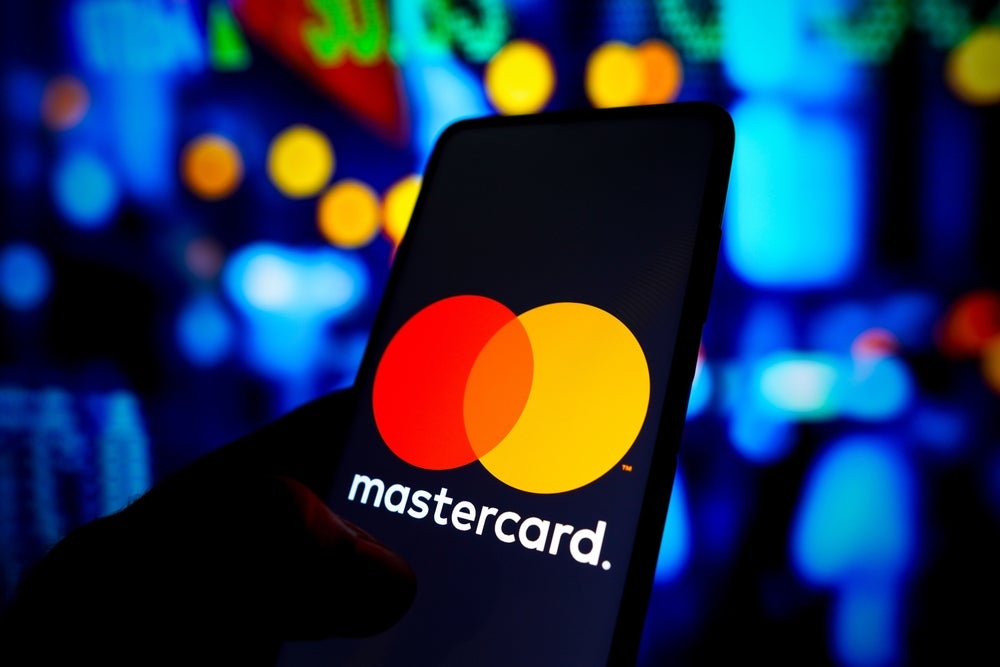Virtual currency used to be
associated only with online games, but recent studies have found
its use could reach $5bn a year. And with Facebook rumoured to be
looking at ways of translating its virtual credits to the real
world, the payments industry is keeping a close eye on
developments. Louise Naughton reports.
It is hard to imagine handing over
hard-earned cash for something that does not exist. But for an
increasing segment of the population, this type of “virtual”
purchase is commonplace and is part of an online world that is
growing rapidly.
For those not accustomed to the
virtual world, or those that do not want to know of its workings
and operations, it would be easy to dismiss these online
communities as a flash in the pan; doomed to die out once something
else comes along to entertain and titillate those virtual
dwellers.
To do so, however, would be
foolish. The virtual world, made-up of the online social and gaming
communities, has given way to the sale of virtual goods –
non-physical goods purchased for use in online communities and
games, and this is where it gets interesting for the payments
industry; such purchases are made using virtual currency.
Virtual currency can be likened to real-world examples such as
air miles and retailer loyalty points -‘symbolic points’ that a
consumer can buy, accumulate or win in order to ‘cash-in’ for
virtual goods. As it is not legal tender, it often falls outside of
the scrutiny of regulators.
How well do you really know your competitors?
Access the most comprehensive Company Profiles on the market, powered by GlobalData. Save hours of research. Gain competitive edge.

Thank you!
Your download email will arrive shortly
Not ready to buy yet? Download a free sample
We are confident about the unique quality of our Company Profiles. However, we want you to make the most beneficial decision for your business, so we offer a free sample that you can download by submitting the below form
By GlobalData
Staggering potential
Over the last couple of years, a
number of studies have been carried out to investigate the
potential for virtual currency and the staggering results that have
followed have forced the payments industry to sit up and take
notice.
The excitement and interest in
virtual goods and currency was growing back in 2009 when the
New York Times cited an analyst estimating the sale of
virtual goods could reach $1bn in the US and $5bn worldwide.
Such estimates were not realised,
with the sale of virtual goods reaching $510m in 2010, but this is
a figure that cannot be ignored.
Research released by market
research company eMarketer this month, predicts social gaming will
break through the $1bn barrier in the US for the first time in
2011.
Revenues generated by the
collective sales of virtual goods, lead-generation offers – virtual
currency incentives offered by marketers to social gamers in
exchange for signing up to subscriptions, participating in surveys
or buying goods and services – and advertising is expected to jump
155% in two years.
Like everything else, social gaming
has also migrated onto the mobile channel. Social mobile gaming
platform Scoreloop released its figures for 2010’s Christmas season
and announced a 216% spike in virtual currency revenues.
“This holiday season consumers made
it clearer than ever their interest in smartphones and appetite for
mobile games,” says Scoreloop CEO Marc Gumpinger.
“The 216% jump in virtual currency
sales we have seen is just one of the indicators that this will be
the year where the fermium and micro-transaction business model
really takes off.”
Tapjoy, a social gaming
monetisation and distribution service, formally known as Offerpal,
claims alternative payment methods would enable game developments
to monetise larger portions of their user base.
According to a study carried out by
market research company comScore on behalf of Tapjoy, then
Offerpal, in March 2010, 53.3% of respondents said they would be
“very likely” to complete a marketing action such as filling out a
survey, watching a video, shopping at online retailers or signing
up for a subscription in exchange for virtual currency to use on
gaming websites.
Furthermore, 29.7% of social gamers
said they “do not have the ability or the means to pay for virtual
currency with cash options” and of those who do have the ability
and means to pay, 34.9% said they would be “very unlikely” to part
with their money in order to purchase points.
Only 22.8% of the respondents
surveyed reported that they would be willing and are able to buy
virtual currency using cash payments methods such as credit cards,
PayPal, bank transfers or mobile billing.
September 2009 saw Tapjoy include a
number of alternative payment options to its monetisation platform
– a process that added weight to the survey’s findings.
During the six months from when the company first launched
Offerpal SURVEYS and released the study, it saw a 20% increase in
the number of users it was able to monetise.

‘Strong demand’
“The data we are seeing shows that
there is clearly a strong demand within social gaming for
alternative ways to pay for virtual currency,” said George Carrick,
then CEO of Offerpal, now executive chairman of Tapjoy.
“When you think of how easy it is
to conduct some of these marketing actions like watching a video
advertisement, and the fact so many people are doing them online
frequently and for no compensation, it makes complete sense that
they might as well get rewarded in virtual currency for it.
“Our goal is to leverage all the
most popular alternative payment methods to monetise the maximum
number of users at the highest revenue per user for our developer
partners.”
Comparing Tapjoy’s findings with
eMarketer’s predictions shows that gaming websites are not allowing
enough consumers to pay for virtual currency through these
alternative methods.
The revenue generated by
‘lead-generation offers’ is growing at a sluggish pace, from $225m
in 2010, to a predicted $260 in 2012.
The growth of virtual currency
seems unstoppable but the road ahead is a bumpy one that threatens
even the most seemingly stable organisation.
One such company that fell victim
to its own poor planning and eventually the regulators in 2001 was
Beenz. Its marketing activity positioned the company as “the web’s
currency – global money that would challenge the world’s major
currencies”. Beenz currency operated in the US, Sweden, France,
Germany, Italy, Japan, Singapore, Australia and China and could be
bought and redeemed for transactions in multiple currencies.
“The service worked on the basis of
a value anchored to reference currencies and the backing of
monetary currencies reserves,” said an analyst, who wished to
remain anonymous.
“This potentially positioned Beenz as a new currency, an
activity that is illegal in most countries. Moreover its ability to
be exchanged for a number of monetary currencies established an
unauthorised, unregulated parallel foreign exchange market.”
Regulators alarmed
As launching a new currency is
illegal, Beenz caught the attention of the Financial Services
Authority (FSA) shortly after its launch in the UK.
After meeting with financial
ministers to explain its business model, it was denied the right to
continue operating and selling the Beenz currency and was forced to
shelve most of its payment ambitions. Its focus then turned to
becoming a consolidated points programme for online players looking
to drive traffic to their websites.
“Beenz ultimately failed in 2001,
partially a casualty of the dotcom boom and bust, and partially due
to lack of sufficient demand for its proposition,” said Charlie
Morris, a consultant at Value Partners.
“It wasn’t strong to attract
critical mass of internet loyalty business and this, together with
overexpansion, led to its downfall.”
Beenz now only exists as a
cautionary tale for those looking to succeed in the virtual
currency space.
An exciting player in the market is
the one with the highest-profile, a company that has
revolutionalised how people interact, and is one everyone at least
knows the name of – Facebook.
Facebook is a social networking
website boasting 500m users. Its virtual goods business, paid for
by its virtual currency ‘Facebook credits’ was projected to make up
10% of Facebook’s estimated revenue $500m in 2009.
Former president of Facebook Sean
Parker predicted higher growth in June 2010, believing Facebook
Credits to account for a third of the social network’s revenue over
the next 12 months. With current revenue reported to be around
$2bn, this estimate stands at $667m.
An analyst confirmed industry
rumours predicting the use of Facebook Credits expanding into
real-world.
The first evidence of this move
into the real world came with the announcement in November 2010
that UK retailers Game and Tesco would be among the first to issue
prepaid cards loaded with Facebook-branded virtual currency.
Retailers such as Walmart, Best Buy and Target will issue the cards
in the US.
Furthermore, the analyst claims it
is plausible Facebook could even consider offering retail banking
services to its members “in the hope it would become the
one-stop-shop portal for e-commerce and online credit”.
On this basis it would not be unrealistic that the social
network may enter a space currently dominated by the internet
banking industry by offering or hosting a range of financial
services such as savings, lending and insurance products.
Person-to-person (P2P) lending, similar to Zopa in the UK, and P2P
payments could also feature through the Facebook portal.
Facebook enters the fray
“Such services are all
speculative,” said the analyst, “but with an estimated one billion
members by 2012, the recent rounds of fund raising valuing Facebook
at $50bn and an expected IPO in early 2012, Facebook may have the
economic structure to resurrect and expand on Beenz-like
ambitions.”
If this were to be the case, one of
two things might happen.
There could either be a wave of
formal Know Your Customer (KYC) and anti-money laundering
procedures to be put in place on social network and gaming virtual
currencies, or there could be a potential demise of the virtual
currency in lieu of a monetary currency operating under e-money or
deposit-taking regulation. The former imposes significant
challenges on virtual currency providers, due to the sheer scale of
geographical ground they would have to cover in becoming compliant
to regulators.
The Chinese government were quick
to ban the use of virtual currency for the trade of physical goods
and services in June 2009 to minimise its effect on the country’s
economy. Under the rules, those caught gambling using virtual money
are punished by public security authorities and the Ministry of
Culture vowed to step up supervision of money laundering using
virtual currency and “other illegal online activities”.
The potential for virtual currency
to grow within the safe haven of the virtual world is tremendous
and acts as one of the most exciting developments to happen to the
payments industry in recent years. However, once it makes that step
into the real world, its future becomes uncertain and its
foundation not as strong.
Virtual currency must take baby steps as it enters the payments
arena as a credible payment method and not make the mistake to run
before it can walk.







